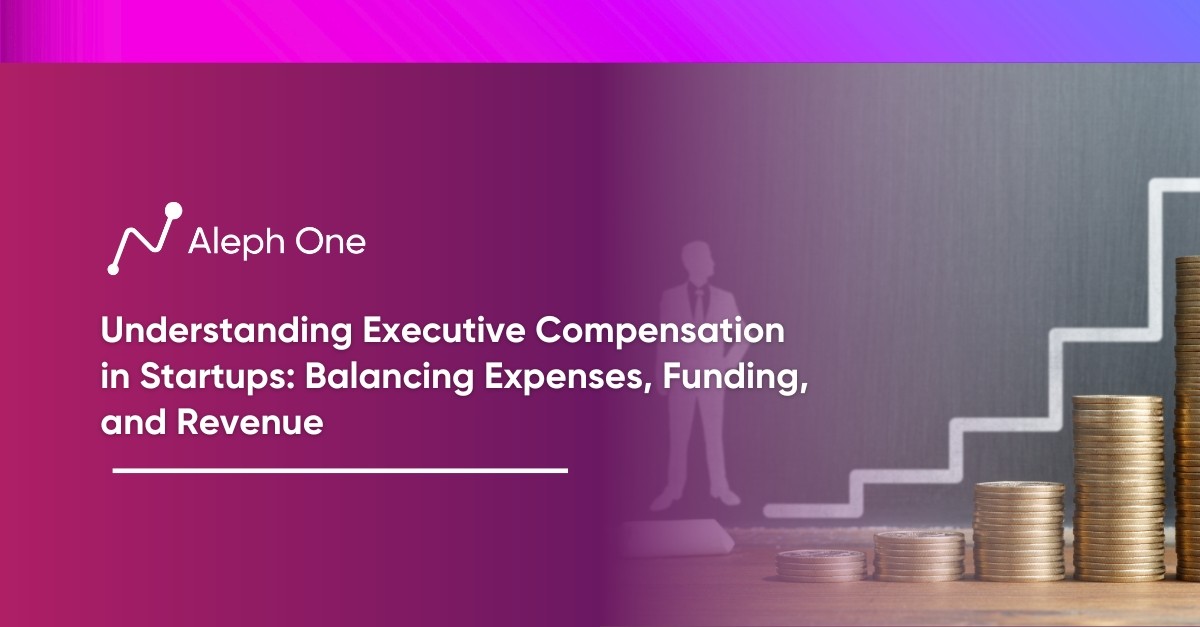Let’s work together to build something amazing. Share your project details and our team will reply to figure out the next steps to your success.

As a startup, one of your most valuable assets is intellectual property (IP). Your innovative ideas, creations, and technologies set you apart from competitors and form the foundation of your success. However, navigating the complex world of IP protection can be daunting. This article will explore crucial aspects of safeguarding intellectual property and ensuring fair compensation for your groundbreaking work. From choosing the right IP protection method to handling co-founder conflicts, employee and contractor ownership, and the importance of trade secrets, we will provide valuable insights to help you establish a strong IP strategy. Additionally, we’ll explore the benefits of registering your IP and the added layer of protection that IP insurance can offer. Understanding these essential elements allows you to secure intellectual property rights, attract investors, and position your startup for long-term growth and prosperity.

Choose the Right IP Protection: Patents, Trademarks, or Copyrights?
One of your most valuable assets as a startup is your intellectual property (IP). Choosing the right method to protect your IP is crucial to your success. The three main options are patents, trademarks, and copyrights.
Patents: Safeguarding Innovations and Preventing Copycats
Patents protect inventions and discoveries. A patent could prevent others from copying your innovation if you’ve created a new device, system, or process. Patents are expensive and complex, but they may be worth the investment for startups in biotech, medical devices, or software. Companies like Google, Apple, and Qualcomm have built patent portfolios to protect key technologies.
Trademarks: Preserving Brand Identity and Market Position
Trademarks protect brand names, logos, and slogans. If you have a unique company or product name, a trademark will ensure no competitors can use something similar. Trademarks are affordable and last indefinitely as long as you continue using them. Well-known startups like Uber, Slack, and Mint all have strong trademark protection.
Copyrights: Empowering Creativity and Controlling Distribution
Copyrights protect original works of authorship like books, articles, software, music, and films. Register a copyright to control its distribution and prevent unauthorized copying if you produce creative work. Copyrights are inexpensive but only last for the author’s life plus 70 years. Companies like Facebook, Netflix, and Spotify rely on copyrights to protect their content and software.
Crafting a Comprehensive IP Protection Strategy for Startups
For most startups, a combination of IP protection methods works best. For example, a biotech startup may patent a new therapy, trademark the company and product names, and copyright research papers and software. A tech startup may patent a novel algorithm, trademark their brand, and copyright the code for their mobile app.
The Consequences of Neglecting IP Protection
The key is determining what is most valuable and unique about your startup and choosing the IP protection methods that best fit your situation. With the right strategy, you can establish a competitive advantage, attract investors, and set yourself up for success. But without proper IP protection, you leave your ideas and brand vulnerable to copying – and risk losing control of what you’ve worked so hard to build.
Founders, Equity Splits, and IP: Avoiding Co-Founder Conflicts
Determining who owns what intellectual property (IP) and structuring an equitable equity split is crucial for startups with multiple founders. Failure to properly address these issues early on can lead to messy co-founder disputes down the road that threatens the entire business.
Determining IP Ownership
When developing a new product or service, founders should discuss who came up with which ideas and innovations. If certain concepts or technologies were created before the startup was formed, the founders must determine who owns that pre-existing IP and whether it will be licensed or transferred to the new company. These discussions may be difficult, but hashing out IP ownership upfront helps avoid confusion and conflict later on.
Splitting Equity Fairly
Founders must also split equity fairly and reasonably based on each person’s contributions, skills, and responsibilities. An even split is only sometimes the best approach and may disproportionately reward some founders. Determining equity splits requires open communication and a willingness to compromise.
Tailoring Equity for Unique Contributions- Finding the Right Balance
For example, if one founder developed the initial product concept and prototype while another founder leads the fundraising efforts, an even 50-50 split may need to be clarified. In this case, the founder responsible for building the product may receive additional equity. In contrast, the fundraising founder may get a seat on the board of directors to maintain influence over key decisions.
Vesting Schedules and Cliff Periods
When structuring equity and IP ownership, startups should consider vesting schedules and “cliff periods.” Vesting means that founders earn their equity over time rather than receiving it all upfront. A cliff period, often a year, means founders receive no equity until that period ends. These mechanisms incentivize founders to remain committed to the startup’s success.
Navigating Sensitive Issues – Building a Strong Foundation
With open communication, compromise, and well-drafted legal agreements defining IP ownership and equity splits, startups can avoid the types of co-founder disputes that often tear young companies apart. Addressing these sensitive issues may not always be easy, but the alternative—ending up in court battling over who owns the business—is far worse. Defining roles, responsibilities, and ownership from the start is well worth the effort.
Employees and Contractors: Who Owns What?
As a startup, one of your most valuable assets is intellectual property (IP). However, determining who owns the IP rights to work created by your employees and contractors can be complicated. To avoid confusion and legal disputes down the road, it’s critical to establish clear ownership terms in your employment contracts and contractor agreements from the start.
Clarifying Rights and Responsibilities
For employees, the default in many countries is that the employer owns any IP created within the scope of employment. However, including an IP assignment clause in your employment contracts is still a way to eliminate doubt. The clause should specify that the employee assigns to the company any IP they create related to the company’s business. Consider including a clause that covers IP even after an employee leaves the company.
Contractors and the Ownership of IP
The situation is more complex with contractors as they have yet to be officially employees. The default assumption is that contractors own any IP they create unless otherwise agreed in the contract. Your agreement should include a “work for hire” clause that assigns IP ownership to your company. The contract should also prohibit the contractor from reusing or reselling that work for other clients. The contract must specify who owns what if their work product includes any pre-existing IP.
Securing Full Control and Ownership – Safeguarding Creative Efforts
Failing to address IP ownership in your contracts can lead to losing control over valuable IP assets or even lawsuits. For example, in 2002, a contractor sued Cisco Systems over ownership of parts of the company’s router software, claiming it was not “work for hire.” Cisco eventually won the suit, but only after a lengthy legal battle. To avoid such issues, startups should work with a legal professional to draft contracts with comprehensive IP assignments and ownership terms tailored to their unique situation. With clear contracts in place, startups can ensure they maintain full control and ownership over the fruits of their employee’s and contractors’ creative efforts.
Keeping Trade Secrets, Well, Secret
Trade secrets are a crucial yet often overlooked form of startup intellectual property protection. Trade secrets, such as proprietary processes, methods, or technologies, are confidential business information that provides a competitive advantage. Unlike patents, trade secrets are protected indefinitely as long as they remain confidential.
Recognizing Key Information Worthy of Trade Secret Status
To adequately protect trade secrets, startups must first identify what information constitutes a trade secret. This could include technical specifications, formulas, algorithms, code, or business methods. Next, startups should implement stringent security measures to maintain secrecy. This includes restricting access to only those employees or contractors who need to know the information, using non-disclosure agreements (NDAs), securing physical and digital data storage, and monitoring for unauthorized access or leaks.
Lessons from Well-Known Examples
Some well-known examples of valuable trade secrets include the Coca-Cola formula, the Google search algorithm, and the KFC fried chicken recipe. In contrast, a cautionary tale is that of Uber’s self-driving car unit. A former employee was caught stealing over $500 million in trade secrets to sell to a competitor. Had Uber taken more robust measures to protect that confidential information, this theft could have been avoided.
Understanding the Limitations of Trade Secret Protection
While trade secret protection seems ideal, there are risks to consider. Unlike registered IPs like patents, trade secrets offer no legal protection if obtained through lawful methods, such as reverse engineering a product or hiring away employees. They can also be difficult to enforce if a leak or theft occurs. However, when appropriately used as part of an overall IP strategy, trade secrets can be a powerful tool for startups to gain a competitive advantage, especially in the early stages of growth.
Making Trade Secret Protection a Priority
The key takeaway is that startups should make trade secret protection a priority. By identifying valuable information, implementing strong security measures, using contracts, and monitoring for leaks, startups can keep their trade secrets confidential and benefit from this powerful yet often underutilized form of IP. With the right strategy, trade secrets and other IP can help startups thrive.
Registering Your IP: Patents, Trademarks, and Copyrights
While IP rights are sometimes automatically granted, formally registering key IP like patents, trademarks, and copyrights is critical for startups. Registration establishes a public record of your IP ownership and allows you to enforce your rights in court if needed.
Patents: Safeguarding Innovations with 20 Years of Protection
Patents provide 20 years of protection for inventions. The patent application process is complex, often requiring the help of a patent attorney. However, the investment in obtaining a patent can be worth it for truly innovative startups. Recent changes to U.S. patent laws under the America Invents Act have moved the U.S. to a first-inventor-to-file system, so startups should apply for patents as early as possible.
Trademarks: Protecting Names, Logos and Brand Identity
Registering a trademark protects things like company names, logos, and taglines. The trademark application process is more straightforward but can still benefit from legal guidance. Trademark rights are granted on a first-come, first-served basis, so startups should apply for a trademark as soon as they settle on a name and brand. Trademark registrations last indefinitely as long as they are properly maintained.
Copyrights: Shielding Creative Works with Legal Benefits
Copyrights cover original works like software code, books, articles, images, and videos. Copyright registration is not required for protection but does provide benefits like the ability to sue for infringement. The copyright registration process can typically be handled without a lawyer. Copyrights last for the life of the author plus 70 years. For corporate works, copyrights can last 95-120 years.
The Value of IP Registrations: Worthwhile Investment for Startups
While the costs of obtaining and maintaining IP registrations can be high for cash-strapped startups, they are often a worthwhile investment. Registering with the appropriate IP offices helps establish clear ownership of your intellectual property, deters others from copying or stealing your creations, and gives you stronger legal grounds to stop any infringement that does occur. For innovative startups, their IP is among their most valuable assets, so protecting it should be a top priority.
IP Insurance: An Added Layer of Protection
While patents, trademarks, copyrights, and trade secrets are all ways to protect a startup’s intellectual property, IP insurance provides an extra layer of protection. IP insurance policies cover the legal costs of enforcing your IP rights against infringers and the costs of defending your IP if another party challenges its validity.
Understanding IP Insurance
IP insurance is available for patents, trademarks, copyrights, and trade secrets. Policies vary in coverage and cost, so startups need to evaluate their needs and budget to choose the right level of coverage. Basic policies cover the costs of sending cease and desist letters or filing initial lawsuits against infringers. Broader coverage includes the costs of litigation and any damages awarded. Premiums depend on factors like the value of the IP, scope of coverage, and perceived risks.
Case-by-Case Considerations for IP Insurance
For example, a startup with a new smartphone patent may want a high-coverage policy if a large tech company infringes on their patent, given the potential for a long, expensive legal battle. On the other hand, a startup with a simple mobile app may opt for a more basic, affordable policy. IP insurance can cost between $5,000 to $100,000 annually or more for an extensive portfolio of valuable IP.
The Price of Peace of Mind
While the cost may seem steep, IP insurance gives startups peace of mind that they can take action against any infringement of their intellectual property. It also puts them in a stronger position when negotiating partnerships or licensing deals, as the other party knows their IP rights are well-protected. Some investors also view IP insurance as a sign of a startup’s maturity and foresight.
New Technology Sectors Covered by IP Insurance
In recent years, IP insurance policies have emerged for new technologies like AI, blockchain, drones, and self-driving cars. These policies help startups innovate in emerging areas where IP laws are still evolving. As IP becomes increasingly essential in the digital economy, IP insurance is a worthwhile investment for startups looking to protect their key competitive advantage. With the right policy, startups can defend their intellectual property against threats and unlock its full commercial potential.
FAQ
Considering the potential high cost of patenting, how can startups navigate the process to receive adequate protection without significantly hindering their overall budget?
Patenting can be costly, particularly for startups that operate on a tight budget. They can navigate this process by assessing the criticality of the invention for their business. If the invention forms their core offering, securing a patent should be considered an investment, not an expense. However, procedural costs can be mitigated by opting for provisional patents initially, which are less expensive and allow for modifications. Additionally, using patenting tools and platforms can help manage costs. Startups can also consider international patent assistance programs designed to aid small businesses.
In a multi-founder startup environment, what strategies can be used to fairly and effectively divide equity and maintain open communication?
Efficiently dividing equity in a multi-founder startup environment can be a challenging task. To do this fairly, it’s advisable that founders approach equity splits based on the extent of each founder’s contribution, their role, responsibility, and commitment to the startup. Establishing a founder’s agreement detailing roles, responsibilities, and equity allocations can be useful while incorporating vesting schedules and cliff periods can ensure continued contribution. Regular check-ins, open dialogue about expectations, and a willingness to adapt and negotiate as the startup evolves can aid in maintaining open communication.
How can startups efficiently monitor and manage their trade secrets to ensure they remain confidential and continue to provide a competitive advantage?
Protecting trade secrets is crucial for the competitive edge of a startup. This protection is two-fold: firstly, the identification of trade secrets, which includes anything from technical specifications to unique business methodologies. Secondly, implementing stringent security measures to maintain their confidentiality is pivotal. This may involve incorporating confidentiality clauses into employment contracts, establishing secure digital storage, regularly auditing for potential leaks, and training employees to understand the importance of maintaining secrecy. A blend of legal, technical, and human-centered strategies is required to safeguard a startup’s trade secrets efficiently.
Get the latest news and updates from Aleph One in your inbox.



